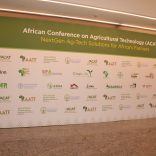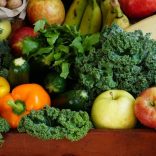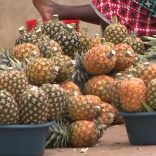Mozambique takes biotechnological maize varieties to ACAT- African Conference on Agricultural ...
Mozambique: Rice production may reach 239 thousand tons in current agricultural season

Photo: Celso Ismael Correia on Facebook
Mozambique can achieve food self-sufficiency in rice if it maintains the levels of production growth that it has been recording in recent years. For the current 2021-2022 campaign, cereal production is expected to reach around 239,000 tonnes, corresponding to a growth of around 15% compared to the previous campaign.
So said Minister of Agriculture and Rural Development, Celso Correia, speaking in Gaza on Monday at a ceremony marking the start of the rice harvest.
Minister Correia recalled that the last campaign’s 207,821 ton rice harvest itself represented a 19% increase on the previous season’s 175,322 tons.
“We are beginning the 2021-2022 rice harvest, and our projection is that we can reach production of around 239,000 tons, which means a growth of 15%. Last year, we hit 19%,” he said.
Correia added that the sector wanted to mark the opening of the season with the use of technology that allows for greater efficiency in harvesting and less loss, in addition to using as much ground as possible and reducing the effort required.
According to the minister, last year’s growth and its projection, if realised, are in line with the country’s aspirations towards self-sufficiency.
“If the country continues with growth levels of 15% per year, by 2030, Mozambique will be self-sufficient in rice production,” he underlined.
Celso Correia acknowledged that the country had great ambitions, being the only one in the region with conditions to produce not only for domestic consumption, but also for export.
For Correia, this was the path to be followed, with persistence and care to optimise the use of limited resources.
He noted, however, that, despite the positive results of the 2020-2021 campaign, increased consumption had meant that cereal imports cost the country around US$600 million, of which rice contributed 50%, equivalent to US$300 million.
Currently, Mozambique consumes around 500,000 tonnes of rice per year, of which 60% is imported.
Correia said that the government would continue to do every possible to allow the production sector to take measures of adaptation to external events and mitigate as far as possible the devastating effects of climate change, given the country’s geographic vulnerability.













Leave a Reply
Be the First to Comment!
You must be logged in to post a comment.
You must be logged in to post a comment.